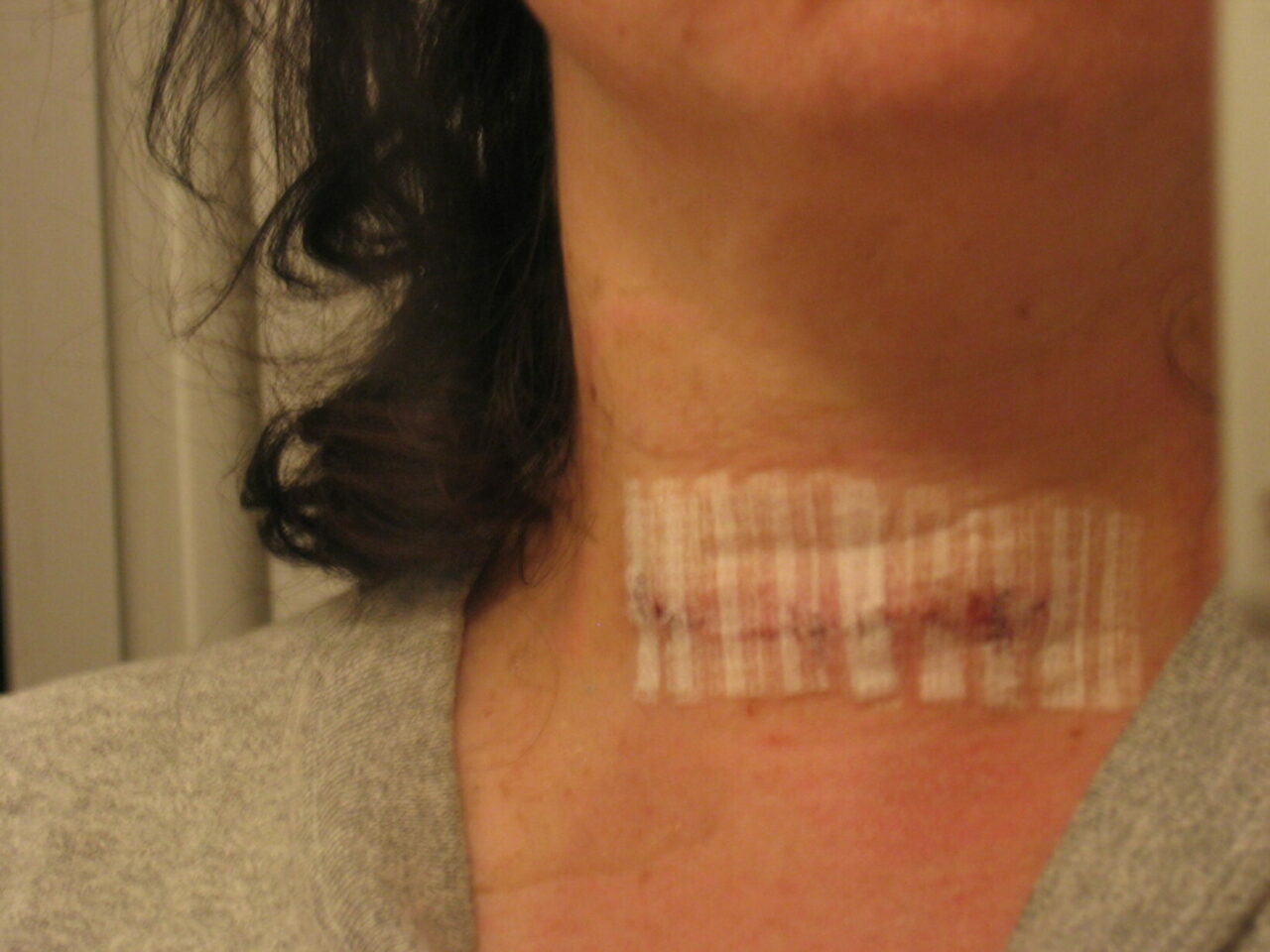Improvements lead to increased efficiency and improved patient experience
Continuing its pace-setting initiatives to enhance the patient experience while increasing workplace efficiency, a pair of experts in thyroid surgery at the Jewish General Hospital (JGH) have successfully implemented a new plan to substantially increase—and sometimes even double—the daily number of operations. By cutting about half an hour from each case, the team shortened wait times for patients who need thyroid surgery.
These measures were implemented to shorten the wait time for patients who often struggle for months with unanswered questions or a difficult cancer diagnosis. Thus, the longer an individual waits for surgery, the longer he or she also spends wondering whether they have cancer or knowing that they do.
In November 2013, Dr. Simcha Kleiman, JGH Chief of Anaesthesiology, and Dr. Richard Payne, a surgeon in the JGH Department of Otolaryngology, introduced logistical improvements before, during and after the surgery. These changes allowed for an increase in the number of surgeries performed each day, without affecting the procedures themselves. Between operations, a specialized team of nurses and orderlies washes the Operating Room and prepares for the next case, thereby accelerating the patient’s move from the operating room to the recovery area and then to the nursing unit.
“Our expert team has managed to bring us from four surgical cases per day to as many as eight, and without rushing tasks or taking on extra work,” says Dr. Kleiman. “By eliminating unnecessary delays in turnover time for the operating room and in patient transfers, the new plan has successfully streamlined the entire process to accomplish more for patients all the while using the same resources.”
While greater efficiency is a goal for many areas of surgery, thyroid surgery was chosen because the procedure is performed with low complication rates and high levels of patient satisfaction at the JGH. In fact, to increase the number of cases per day, some patients don’t stay in the hospital overnight. Instead, two to three are selected as suitable candidates to return home the day of their surgery.
“Our top priority has always been, and continues to be, the safety and quality of care that we offer our patients,” says Valérie Vandal, Associate Director of Nursing for Surgical Services. “To ease the transition from hospital to home, we make sure to take our time with our patients. We provide teaching, information and reassurance, and we remain available to them if they have questions or concerns once they return home.”
“Trimming wait times is an essential element of the Jewish General Hospital’s quest to provide the exceptional patient experience,” says Dr. Lawrence Rosenberg, JGH Executive Director. “By developing ways of working more smoothly and efficiently, our hospital not only satisfies patients’ physical and personal needs, but makes optimal use of the financial, medical and nursing resources of the public healthcare system.”
Since the launch of the new measures, the effect has been overwhelmingly positive for the department’s patients, who often struggle for months with the psychological and emotional toll that can be especially heavy when the results of tests or biopsies are suspicious or inconclusive. Ultimately, the goal is to improve the patient experience even before patients arrive at the hospital for surgery. According to Dr. Payne, “our primary objective is to shorten the amount of time our patients spend waiting and living with their cancer diagnoses.”

